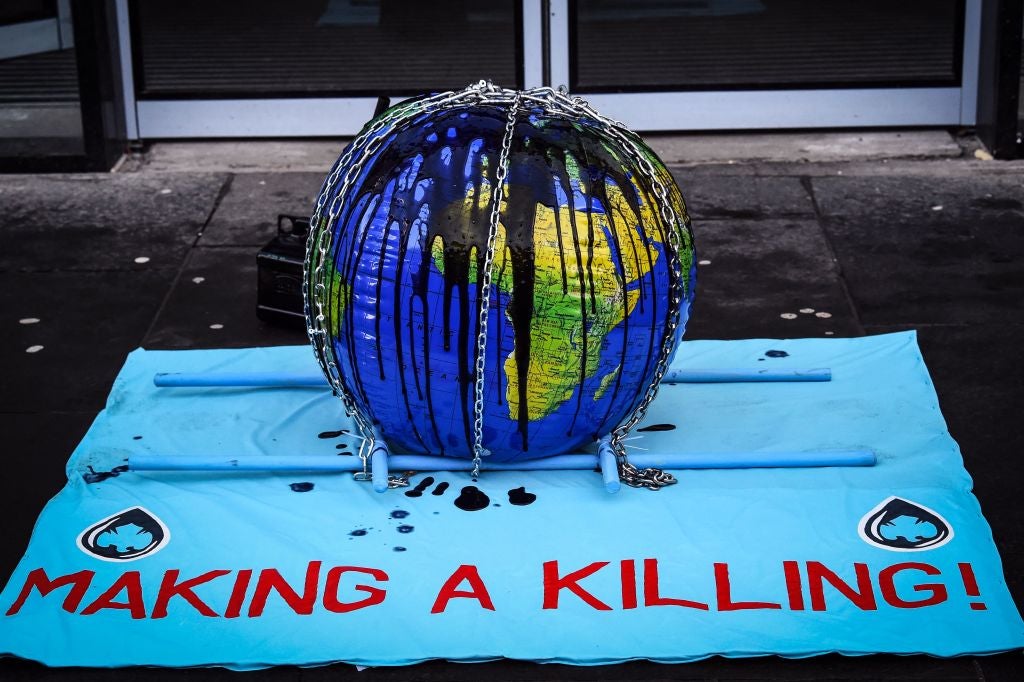
A criticism often levelled at Mark Carney’s Glasgow Financial Alliance for Net Zero initiative (GFANZ) and in particular its banking arm, the Net Zero Banking Alliance (NZBA), is that member banks are not required to set firm policies limiting fossil fuel investment.
New figures published by NGO the Rainforest Action Network (RAN) in its annual ‘Banking on Climate Chaos’ report reveal that the world’s 60 largest banks by asset size, the majority (49) of which have made net-zero commitments, have invested $5.5trn dollars in the fossil fuel industry since the Paris Agreement was signed seven years ago.
This new data, which records banks’ lending, debt underwriting and equity capital market activities, adjusting each transaction according to how much exposure the borrower or issuer has to a specific sector, shows that in 2022 alone, the 60 banks provided $673bn to more than 3,000 companies engaged in fossil fuel activities, including $150bn specifically to the top 100 companies expanding fossil fuels.
The total sum for 2022 represents a 9% decrease compared with 2021 financing, although RAN’s report dismisses the idea that this reduction indicates “a positive, long-term trend”. This is because a more significant trend observed over the past year, given the current context of “rising interest rates, a strong dollar, and wartime profits”, is that several large oil majors that often account for a significant share of bank loans no longer need banks’ support following a year of bumper profits.
Occidental Petroleum, which borrowed $11.2bn per year on average between 2016 and 2021, received no financing whatsoever in 2022 from any of the 60 largest banks, thanks to its 722% profit increase last year. Other fossil fuel majors RAN highlights as examples of companies that have paid off existing debts, and are therefore less reliant on debt markets to raise capital, include US oil major ExxonMobil, which last year recorded a 142% annual profit increase and which also took no money in either loans or underwriting in 2022, despite borrowing $87bn from the 60 largest banks between 2016 and 2021.
Exxon’s biggest supplier of capital over the past seven years, along with Citi, was JPMorgan Chase, which, for the first time since RAN started gathering this data, has been knocked from the top spot of fossil fuel financiers by the Royal Bank of Canada. RAN argues that this is part of a wider trend of Canadian banks positioning themselves as “lenders of last resort” for fossil fuel companies more likely to be excluded by European banks’ policies.
Indeed, digging deeper into RAN’s data, which includes a scorecard from the nonprofit Reclaim Finance that rates the strength of banks’ policies restricting coal, oil and gas, it emerges that European banks are more likely both to have stricter fossil fuel policies than banks based in the US, Canada, China and Australia, and to provide fossil fuels with less capital.
Given that several of these policies were implemented or strengthened prior to this data being gathered, it is impossible to say whether this correlation proves that they are effective. More likely, this pattern reveals that banks with a lower exposure to fossil fuels are more willing to put policies in place restricting these capital flows. The exception is La Banque Postale, a French postal bank, which, in 2021, committed to end all financing for fossil fuels and last year became the first bank out of the 60 to reduce its exposure to zero.
Broadly speaking, RAN’s report finds that 2022 was a “slow” year for fossil fuel policies, with just two banks adopting coal developer exclusion criteria for their existing clients, and no banks adopting new policies or improving existing ones targeting coal expansion companies.
Where banks do have policies in place, they are critiqued both by RAN and by Reclaim Finance for containing glaring loopholes. For example, while underwriting bonds and equities accounted for 36% of all fossil fuel financing, most major banks exclude these activities from their fossil fuel policies altogether.



